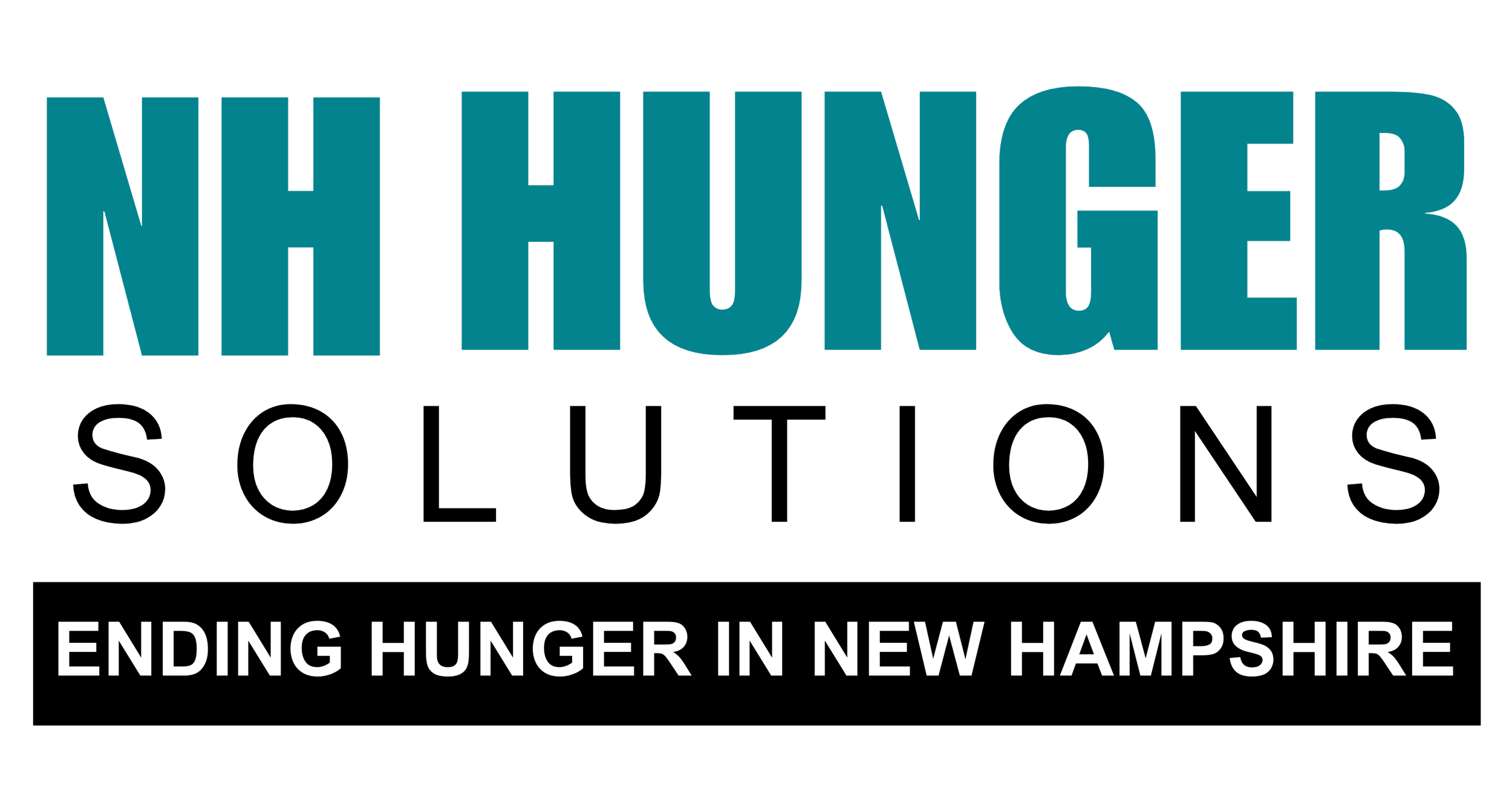
Policy & Advocacy
Latest updates on policy

Dear Friend of NH Hunger Solutions:
As we begin 2026, many Granite State families are facing an uncertain winter. While the holidays are behind us, the challenge of putting food on the table remains--and this year, the systems that help are being threatened.
At NH Hunger Solutions, we view the system of food and nutrition supports as a power grid. When it's fully powered, it ensures that children can learn, older adults can stay healthy, and workers can stay on the job. But right now, several problems in New Hampshire's legislature are threatening to disconnect thousands of our neighbors from the food they need.
We need your support today to keep the grid online.
Critical Threats in the 2026 Session:
This month, our team is on the ground at the State House every day, advocating against major threats to New Hampshire families:
The $5.75 Million Downshift: Due to federal policy changes, New Hampshire is being asked to cover a much larger share of the costs to run the SNAP program. If the state doesn't fund this $5.75 million gap, eligible families may lose their food benefits simply because the state lacks the staff to process their forms.
Barriers to Stability: We are fighting several aggressive bills that would roll back eligibility and add rigid "red tape," like asset tests and food restrictions. These bills don't increase program integrity; they punish families for having modest savings and make the system more expensive for NH taxpayers to run.
A particularly harmful bill, SB 615, has just been scheduled for a hearing on Wednesday, January 14, 2026.
Those of you who signed up for our action alerts will receive emails next week asking you to contact members of the Senate Health and Human Services Committee to oppose the bill.
Your financial support will help bolster our fight against this and other bills that try to weaken SNAP and increase food insecurity in New Hampshire.
Your Gift Powers the Defense
Your donation provides the high-voltage advocacy needed to protect the grid. With your help, we are:
Preserving Access: Opposing all bills that threaten the SNAP program.
Supporting Affirmative Solutions: We are championing bills to expand free school meals to families at 200% of the poverty level and fund increased SNAP administrative costs.
Mobilizing NH Voices: We are ensuring that the stories of Granite Staters who rely on these programs and the systems that support them are being heard in Concord, including schools, medical providers, direct food and family support programs.
Will you help us keep the power on?
The most expensive way to deal with hunger is to treat the health issues it creates in our hospitals and schools. By investing in advocacy today, you are helping us prevent hunger before it starts. Please make a gift today to protect New Hampshire's nutrition infrastructure.
Thank you for being the current that keeps our community strong.
With gratitude,
Laura Milliken, Executive Director, NH Hunger Solutions
What we support and why
We at New Hampshire Hunger Solutions promote and support legislation that increases accessibility to food for NH residents.


